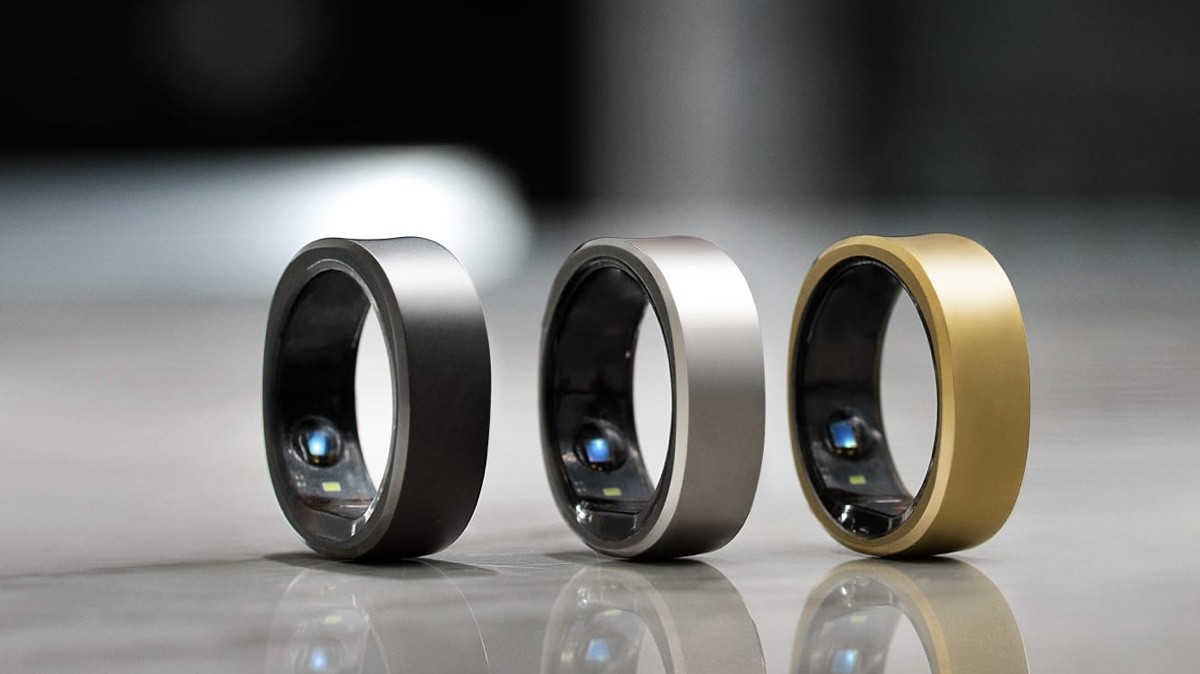Smart Rings: Can Technology Build Or Break Trust?

Table of Contents
The Potential of Smart Rings to Build Trust:
Enhanced Security and Convenience:
Smart rings are increasingly leveraging biometric authentication to bolster security and streamline access. These convenience features significantly enhance user trust by simplifying daily tasks and reducing reliance on easily compromised passwords.
- Biometric authentication: Fingerprint scanning and heart rate monitoring provide a highly personalized and secure method of identification, making unauthorized access significantly more difficult. This biometric security is a game-changer for access control systems.
- Secure payment options: Contactless payment systems integrated into smart rings offer a fast and secure alternative to traditional payment methods. This secure payment option enhances convenience and reduces the risk of theft or fraud.
- Improved access control: Smart rings can be used to unlock doors, access buildings, and even start cars, providing a seamless and secure access control system. This adds an extra layer of convenience features to daily life.
For instance, imagine replacing your numerous passwords with the simple security of fingerprint authentication via your smart ring. This eliminates the need to remember complex login details, significantly increasing user confidence and trust in the technology.
Improved Health Monitoring and Wellbeing:
The health monitoring capabilities of smart rings are transforming personal healthcare. By providing users with valuable data and insights, these devices foster trust in personal health management.
- Heart rate tracking: Real-time monitoring allows for early detection of potential heart problems, empowering users to take proactive steps towards better health. This health monitoring functionality is invaluable.
- Sleep monitoring: Tracking sleep patterns and quality provides crucial insights into overall wellbeing, enabling users to optimize their sleep hygiene. The data accuracy of sleep tracking is key to building user trust.
- Stress detection: Identifying stress levels allows individuals to implement stress-reducing techniques and proactively manage their mental health. The integration of wellness technology in smart rings is a promising development.
- Medication reminders: Smart rings can send timely reminders, ensuring medication adherence and improving health outcomes. This improves wearable health tracker adherence.
Accurate sleep tracking, for example, can significantly improve sleep hygiene, leading to better overall health and a greater sense of trust in the device's ability to support health goals.
Streamlined Communication and Connectivity:
Smart rings are designed to enhance efficiency and communication, fostering a sense of seamless integration and building user trust.
- NFC payments: Near Field Communication (NFC) technology allows for quick and easy contactless payments, streamlining transactions. This NFC technology is key for convenient contactless payments.
- Contactless access: Unlocking doors, accessing buildings, or starting cars with a simple tap simplifies daily interactions. This enhances contactless payments and overall usability.
- Notification alerts: Discreetly receiving notifications directly on the ring keeps users informed without constantly checking their phones. Smart rings can offer seamless smart home integration.
The simplification of daily interactions, from unlocking doors to making quick payments, fosters a sense of ease and trust, making the technology feel intuitive and reliable.
The Risks of Smart Rings and the Erosion of Trust:
While offering significant benefits, smart rings also present considerable risks that can erode user trust.
Data Privacy Concerns and Security Breaches:
The inherent nature of data collection in smart rings raises crucial data privacy concerns. Robust security measures and transparent data policies are crucial to mitigating these risks and maintaining user trust.
- Data collection practices: The type and amount of data collected need to be clearly defined and justified to build user trust. Concerns surrounding data privacy are paramount.
- Potential for hacking: Smart rings are susceptible to hacking, potentially exposing sensitive personal information. Strong cybersecurity measures are crucial.
- Vulnerability to data theft: Data breaches can expose private health data, financial information, and location details, severely impacting user trust. This highlights the need for robust security protocols.
- Lack of transparency in data usage: Users need to understand how their data is collected, used, and protected. This requires complete transparency in data breaches prevention and reaction protocols.
End-to-end encryption and secure data storage practices are vital to preventing unauthorized access and maintaining user trust.
Ethical Implications of Constant Monitoring:
The constant monitoring capabilities of smart rings raise serious ethical considerations, impacting individual autonomy and privacy.
- Potential for misuse of personal data: Data collected by smart rings could be misused by employers, governments, or other entities, raising significant privacy concerns. This requires careful consideration of ethical considerations and data ethics.
- Concerns about surveillance: The ability to track location and activity raises concerns about surveillance and the erosion of personal freedom. The impact of surveillance technology needs careful evaluation.
- Impact on autonomy and privacy: Constant monitoring can infringe on personal autonomy and privacy rights, undermining trust in the technology. Respect for privacy concerns is vital.
Employers or governments, for example, could potentially misuse health or location data obtained through smart rings, highlighting the need for robust regulations and ethical guidelines.
Reliability and Accuracy of Data:
The accuracy and reliability of data collected by smart rings are crucial for maintaining user trust, particularly in health-related applications.
- Inaccurate readings: Sensor malfunctions or environmental factors can lead to inaccurate readings, undermining user confidence. The impact on data accuracy is significant.
- Malfunctioning sensors: Faulty sensors can provide misleading data, potentially leading to incorrect health assessments or decisions. Sensor reliability is key for health monitoring.
- Limitations of technology: Smart rings are subject to the limitations of current technology, which can impact the accuracy and reliability of data collected. Understanding technology limitations is crucial.
Inaccurate heart rate readings, for example, can undermine a user's confidence in the smart ring's capabilities and erode trust in the technology.
Conclusion: Navigating the Trust Equation with Smart Rings
Smart rings represent a powerful intersection of convenience and technology, yet their potential benefits are inextricably linked to concerns about data privacy and security. Building trust requires a delicate balance: manufacturers must prioritize responsible data handling practices, implement robust security protocols, and maintain transparent communication with users. This includes clearly outlining data collection practices, ensuring data encryption and secure storage, and addressing potential vulnerabilities proactively.
To navigate this complex landscape, consumers must carefully research smart ring manufacturers, scrutinizing data privacy policies and security features before making a purchase. Choosing a reputable brand that prioritizes user security and privacy is crucial for building trust in smart ring technology. Making informed decisions regarding smart ring adoption and responsible use of the technology is paramount in ensuring a positive and trustworthy user experience. Remember to prioritize your privacy and security when considering any wearable technology, including smart rings, and opt for brands with proven track records of responsible data handling and robust smart ring security.

Featured Posts
-
 This Country A Travelers Diary
May 03, 2025
This Country A Travelers Diary
May 03, 2025 -
 Rumeurs D Ingerence Macron Et L Election Du Prochain Pape
May 03, 2025
Rumeurs D Ingerence Macron Et L Election Du Prochain Pape
May 03, 2025 -
 Photoshop Controversy Christina Aguileras Altered Image Sparks Debate
May 03, 2025
Photoshop Controversy Christina Aguileras Altered Image Sparks Debate
May 03, 2025 -
 Reform Party Implodes Amidst Leaked Farage Messages
May 03, 2025
Reform Party Implodes Amidst Leaked Farage Messages
May 03, 2025 -
 Unlawful Harassment Allegations Against Rupert Lowe An Examination Of The Reform Shares Report
May 03, 2025
Unlawful Harassment Allegations Against Rupert Lowe An Examination Of The Reform Shares Report
May 03, 2025
